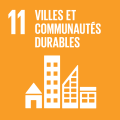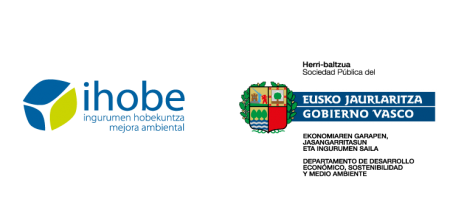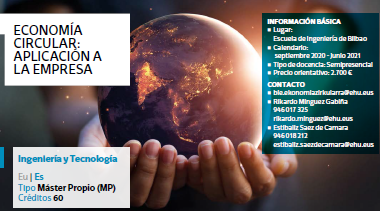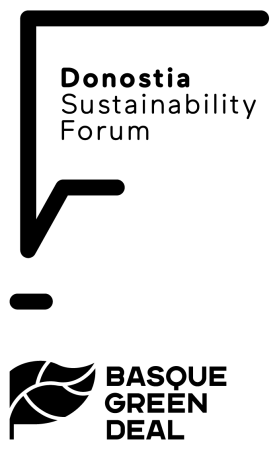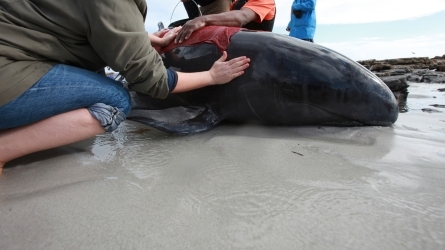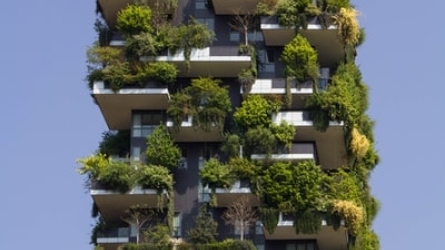
Circular Economy and its opportunities for the public sector in the post-pandemic scenario
Description
This Summer Course will be held face-to-face and there will also be the possibility of participating live online through ZOOM. In the registration process, please select the participation of your choice: face-to-face or live online.
In the midst of the first wave of the COVID-19 pandemic, the European Commission adopted a new Action Plan for the Circular Economy, one of the main elements of the European Green Deal (European Commission, 2019). The European Green Deal is an ambitious roadmap towards a climate-neutral Circular Economy, in which economic growth is decoupled from the use of resources. The Circular Economy reduces pressure on natural resources and is a precondition for reaching the climate neutrality goal by 2050 and tackling the loss of biodiversity. Half of the total greenhouse gas emissions and more than 90% of the loss of biodiversity and water stress are due to the extraction and treatment of resources.
The Circular Economy aims to adapt our economy to a green future and strengthen our competitiveness, while protecting the environment and conferring new rights on consumers. The deployment of this plan and the initiatives to be implemented require the close collaboration of all interested parties: not only companies, but also the public sector and citizens.
The Basque Country has been working effectively on Circular Economy for years. Since 2000, the Basque economy has grown by 26%, while the consumption of materials has been reduced by 25% and, the volume of urban waste that ends up in landfills has been reduced by 56%. Consequently, it can be stated that our economy is decoupling from the consumption of materials and the generation of waste through the promotion of Circular Economy measures.
In order to continue advancing in the circularity of the economy, the Euskadi Circular Economy Strategy 2030 was approved last year (Basque Government, 2020). This strategy aims to enhance the competitiveness of the region, promote job creation and contribute to sustainability in this region. Its main challenge is to achieve the collaboration and involvement of all agents (companies, administrations and citizens), so that the vision is not only the circularity of the companies, but the circularity of the entire territory.
Many people who work in the administration are committed to this circular model and are aware of the important role they can play in creating the right conditions to facilitate it, as well as the benefits it could bring to the areas they manage.
This Summer Course is intended to analyze the opportunities presented by the Circular Economy and the European Green Deal for administration (regional-local) and provide people responsible for the design and/or implementation of public policies with the set of tools to help accelerate the transition to the Circular Economy. For this, good practices and exemplary attitudes will be presented.
Objectives
Analyze the design and development policies of the European Green Deal from European and regional perspectives.
Present the methodological keys and tools for the deployment of the European Green Deal, as well as the ways to monitor results and demonstrate tangible achievements for a climate-neutral Europe in 2050.
Describe the specific strategies and practices for integrating the European Green Deal and the Circular Economy in the governance in the public administration.
Demonstrate the opportunity that represents the alignment of public policies with the European Green Deal in the post-covid scenario.
Activity directed to
- University students
- Students not from university
- Teachers
- Professionals
- All public
Program
29-06-2021
Registro
Institutional Opening session
- Alexander Boto Bastegieta Sociedad Pública de Gestión Ambiental del Gobierno Vasco- IHOBE - Director General
- Estíbaliz Sáez de Cámara Oleaga UPV/EHU - Directora de Sostenibilidad y Compromiso Social de la UPV/EHU
- Koro de la Caba Ciriza Fundación Cursos de Verano de la UPV/EHU - Secretaria académica
“ The Circular Economy and the European Green Deal, the best way to boost the economy after the Covid-19 crisis“
- Stefano Soro DG Internal Market, Industry, Entrepreneurship and SMEs. European Commission - Director General de la Unidad Green and Circular Economy (Este ponente intervendrá vía Zoom)
Round table: “La Economía Circular y el Pacto Verde Europeo en el centro de los retos de aquí al 2030“
- Olga Martín García Basque Environment Cluster- ACLIMA - Directora General (Moderator)
- Leire Barañano Orbe Instituto Vasco de Investigaciones Agrarias-NEIKER - Directora General
- Enrique Monasterio Beñaran Ente Vasco de Energía (EVE) - Director de Desarrollo e Innovación
- Arantza Madariaga Aberasturi Fundación Vasca para la Seguridad Agroalimentaria - ELIKA - Directora
- Iñaki Arto Basque Center for Climate Change (BC3) - Investigador – profesor del área Energía y modelización ambiental-económica
Break
Round table: “Instrumentos de Financiación de Economía Circular “
- Jorge Fernández Gómez Orkestra Instituto Vasco de Competitividad - Coordinador del área de energía (Moderator)
- José María Fernández Alcalá Sociedad Pública de Gestión Ambiental del Gobierno Vasco- IHOBE - Director de Economía Circular (Este ponente intervendrá vía Zoom)
- Ismael Aznar Cano Ministerio para la Transición Ecológica y el Reto Demográfico - Director General de Calidad y Evaluación Ambiental (Este ponente intervendrá vía Zoom)
Synthesis
30-06-2021
“Accelerating circular economy: Key actions for local and regional governments“
- Daniel Martín-Montalvo Álvarez Head of Sustainable Resource Use and Industry- European Environment Agency (EEA)
Break
Round table: “Euskadi, una región con iniciativas locales referentes en Economía Circular“
- Xabier González Vegas Sociedad Pública de Gestión Ambiental del Gobierno Vasco- IHOBE - Director de Sostenibilidad Ambiental (Moderator)
- Aitziber Cortazar Altuna Debegesa - Responsable de Turismo y Desarrollo Sostenible
- María Jesús Del Blanco Patiño Ayuntamiento de Bilbao - Responsable de Sectores Estratégicos en Bilbao Ekintza
- María Fernández Peral Ayuntamiento de Vitoria-Gasteiz - Técnica de gestión ambiental de empresas
- Leire Arrizabalaga Arambarri Azaro Fundazioa - Responsable del Observatorio
- Noemi Llorente Díez Ayuntamiento de Amurrio - Técnica de Medio Ambiente
Closing session
- Rikardo Minguez Gabiña Director del Master en Economía Circular: aplicación a la empresa de la UPV/EHU
Directors

Estíbaliz Sáez de Cámara Oleaga
Universidad del Pais Vasco/Euskal Herriko Unibertsitatea (UPV/EHU)
PhD in Environmental Engineering and professor in the ‘Environmental Technologies’ area in the Department of Chemical Engineering of the Environment at the School of Engineering in Bilbao. Since 2017 she is the Director of Sustainability and Social Commitment at the UPV / EHU. She is in charge of promoting and planning, along with the Vice-Rectorrate of Scientific and Social Development and Knowledge Transfer. She is a member of the Academic Committee of the Master Circular Economy: Business Aplication. Furthermore, she is the vicepresident of the Spanish Network for Sustainable Development (REDS).
Speakers

Leire Arrizabalaga Arambarri
She graduated in Business Sciences from the Mondragon University and she has developed a large part of her professional career linked to local development. Since 2005, she has been part of the Azaro Fundazioa team and for 4 years, she has managed the Lea Artibai Development Agency. She works in the observatory area where she proactively identifies opportunities that have an impact on the economic development of the Lea Artibai region. Together with her team, she has developed numerous projects in coordination with companies and local agents for the strengthening of the business network and generation of new business opportunities linked to different areas including the circular economy.
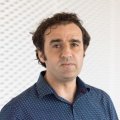
Iñaki Arto
BC3. Basque Centre for Climate Change
PhD in Economics, Master in Engineering (Environmental Technology and Management) and Degree in Economics. He is currently a research professor at the Basque Centre for Climate Change (BC3), which he joined in 2013. He has previously held research positions at the Joint Research Centre of the European Commission (2010-2013) and the University of the Basque Country UPV/EHU (2001-2010). His research focuses on the analysis of the social, economic and environmental implications of the transition to a low-carbon economy. He has published more than 130 technical and scientific papers including 60 articles in scientific journals, 4 books, 17 book chapters and more than 50 scientific reports. He has also been a consultant to several institutions such as the Food and Agriculture Organization of the United Nations (FAO), the World Bank, the World Health Organization and the European Commission, among others.
Ismael Aznar Cano
Dirección General de Calidad y Evaluación Ambiental, Director General
Ismael Aznar Cano is graduated in Law with a specialization in Community Law from the CEU San Pablo University in Madrid. He is a member of the Civil Administrators Staff of the State. He also holds a degree in Geography and History from the National University of Distance Education (UNED). Since February 2020 he has been General Director on Environmental Quality and Assessment at the Ministry for Ecological Transition and the Demographic Challenge. From July 2018 to February 2020 he was Director of Cabinet of the Secretary of State for the Environment. From January 2014 to July 2018 he worked at the European Commission as Policy officer (Seconded National Expert) in the General Directorate for Climate Action. From 2000 to 2013 he held positions of responsibility in different areas of the Ministry of Agriculture, Food and Environment and Ministry of Economy and Finance.

Leire Barañano Orbe
General Manager of NEIKER. She is a member of the governing boards of the Elhuyar Foundation and the Elika Foundation, of the board of the European Forest Institute (EFI) and of the board of directors of the Basque Research and Technology Alliance (BRTA). In 2021, he joined the Basque Council for Science, Technology and Innovation.

Aitziber Cortazar Altuna
Graduate in Business Management and Administration from Mondragon Unibertsitatea. MBA General Management and Postgraduate Degree in Local Agenda 21 Management. Since 2000 she has been Head of the Sustainable Development Department of Debegesa, Regional Development Agency of Debabarrena, and since 2016 she has also directed the Tourism Area of the organization. She has led and been part of the drafting team of the Strategic Plan for Sustainable Development of Debabarrena, Energy Strategy of Debabarrena and the definition of the Industrial Agenda of the Circular Economy of Debabarrena. Among the works led by Aitziber, the following three projects awarded by Udalsarea stand out: Revitalization of the Agenda 21 processes, Goitondo Project and Deba Ibaia Bizigura.

María Jesús Del Blanco Patiño
Manager of Economic Strategic Sectors Area at Bilbao Ekintza (Economic Development Agency of Bilbao), she is in charge of several programs related to Creative Industries, Digital Economy and Advanced Services, and works on activities linked to the European projects and International Design networks, as the UNESCO Cities of Design network. She also co-organizes the Bilbao Design Week and other events on the field of Design. She has a MSc in Management, Marketing specialty by Sarriko University UPV-EHU and has taken part in the International Leadership Program in Visual Arts Management, New York University – NYU and Deusto University, and Microeconomics of Competitiveness, Deusto University.

José María Fernández Alcalá
Director of Circular Economy at Ihobe and responsible for the Basque Ecodesign Center, a public-private collaboration initiative between the Basque Government itself and 8 of the most important industrial companies with their own products in the Basque Country for the promotion of Ecodesign and the integration of Life Cycle Assessment in industrial activity. Industrial Engineer from the Faculty of Engineering in Bilbao, he has more than 15 years of professional experience in private enterprise and administration. More than 10 years actively participating in different technical committees of the European Union in Brussels and in national and international committees in the field of product standardisation (UNE and ISO committees). Designated expert for Latin America and the Caribbean in Ecodesign, Life Cycle Assessment and Sustainable Building by the United Nations Environment Programme (UNEP).
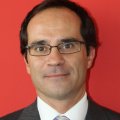
Jorge Fernández Gómez
Jorge Fernández is Coordinator of the Energy Area at Orkestra. He holds a PhD in Economics from Georgetown University, and a Bachelor's degree in Economics from the Autonomous University of Madrid. He has published several articles in specialist journals and books on the functioning and regulation of energy markets. He has extensive experience in the energy sector. He was director of analysis at MIBGAS, in the field of strategy, regulation and market analysis. He was technical director of the Iberian Gas Hub, working in the gas hub in the Iberian Peninsula and directing intermediation services in the wholesale natural gas market. He was deputy general manager of Intermoney Energía, where he led a team specialising in the regulation and operation of energy markets, and consultant at NERA Economic Consulting, in projects analysing regulated activities in the electricity sector and the operation of electricity markets.

María Fernández Peral
Degree in economics from the EHU/UPV, with a university specialisation in communication, environmental policy, regional and urban economics. Master's degree in Business and Institutional Communication Management from the Autonomous University of Barcelona. Professionally linked to the management of public policies, he has developed technical functions in the management of projects and services related to the design, development and communication of environmental policies for the last twenty years. Since 2010 he has held management responsibilities in the field of strategic support and communication. He is currently the Director of Environmental Sustainability at Ihobe, the Basque Government's Public Company for Environmental Management. In addition, since 2011 he has participated in several external evaluation processes within the framework of the Euskalit Basque Award for Advanced Management, playing the role of senior evaluator in some of them.

Noemi Llorente Díez
Ayuntamietno de Amurrio
Degree in Biology from the UPV/EHU (1999), she has been working as an Environmental Technician at Amurrio Town Council since 2000 as head of environmental planning and sustainability. She is in charge of developing and implementing Agenda 2030 in the municipality and has been the coordinator of the EMAS environmental management system in Amurrio Town Council since 2003. She has managed numerous strategic and innovative projects in the environmental and sustainability sector in Amurrio, in different topics such as circular economy, climate change, energy transition, water cycle management, biodiversity, soil, mobility, environmental education, rural development and citizen participation, among others.
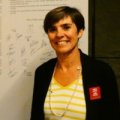
Arantza Madariaga Aberasturi
Degree in Law from the University of Deusto, Specialist in Gender Mainstreaming from the University Jaume I of Castellon. General Manager of ELIKA FUNDAZIOA, Basque Foundation for Basque Agri-Food Security from 2016 to the present and therefore member of the Management Committee of the Circular Economy Strategy of the Basque Country, co-responsible for the Circular Food Key Project of the Environmental Framework Plan of the Basque Country and participant in the Strategic Plan for Gastronomy and Food of the Basque Country. Elika Fundazioa has designed and implemented the Basque Strategy against Food Waste. It has created the Basque Platform against Food Waste in more than 100 organisations. Elika Fundazioa supports the Basque agri-food sector in the transition towards a more sustainable food system, following the Farm to Fork Strategy integrated in the Green Deal and the Basque Country 2030 Agenda.
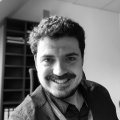
Daniel Martín-Montalvo Álvarez
European Environment Agency
He coordinates activities on Circular Economy, sustainable resource use and industry at the European Environment Agency (EEA). Previously, he worked as an expert in the area of industrial environment at both the EEA and the European Commission. Prior to his European experience, Daniel worked in the administration of the Community of Madrid coordinating the inspection of industrial installations, particularly those under the scope of the regulations on pollution integrated prevention and control, and as a consultant for the former Ministry of Environment in the field of environmental investments of various European Funds.

Olga Martín García
ACLIMA, Basque Environment Cluster, Directora General
She holds a degree in Chemistry (University of the Basque Country) and an Executive MBA (University of Barcelona). She has extensive professional experience in companies, particularly in VIDRALA, where she has held various management positions. She has participated as a representative in important glass sector associations such as FEVE - European Federation of glass packaging and glass tableware makers and ANVEFI - National Association of Glass Packaging Manufacturers, and in glass consortiums in the field of innovation such as IPGR or ICG. Olga Martín is currently the General Manager of Aclima. Her commitment to the cluster and its Strategic Plan is to position the Basque environmental sector as a lever of competitiveness for the rest of the sectors. Aclima-Basque Environment Cluster is the reference point for the environmental sector in the Basque Country. It represents the private sector as well as the sphere of knowledge and the public sector.

Rikardo Minguez Gabiña
University of the Basque Country (UPV/EHU)
Industrial Engineer specialized in Mechanical engineering (1995) by the Faculty of Engineering in Bilbao. He works at the Department of Graphic Design and Engineering Projects since 1998. He was recognized as Full Professor since 2019. Head of the Department of Graphic Design and Engineering Projects since 2016. Chair of the board of studies of the Master's Degree 'Circular Economy: Business Application' of the University of the Basque Country. He joined Laval University in Québec in 2005 as a visiting scientist. He works in the Product Design Laboratory since its creation in 2005, and in the Life Cycle Thinking Group. His current research focuses on Product Life Cycle Assessment, Ecodesign and Circular Economy.
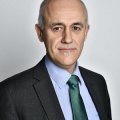
Enrique Monasterio Beñaran
EVE - Ente Vasco de la Energía, Director
Enrique Monasterio: Graduate in Industrial Engineering specialising in energy technologies at the Bilbao Engineering School, part of the University of the Basque Country (UPV/EHU), where he also did his doctorate in Thermal Engineering. He also holds a master's degree in Automotion Project Leadership from AIC. His career has always been linked to the energy sector. He is currently head of Development and Innovation at the Basque energy organisation EVE, where he has worked in different positions since 1992. From 2010 to 2016, and then in the first half of 2018, he held the position of general manager of the electric vehicle charging service provider IBIL (in which EVE and REPSOL each have a 50% holding) and its electric car-sharing subsidiary IBILEK. For some years he combined his work at EVE with lecturing in thermodynamics at the Bilbao Engineering School, part of the University of the Basque Country.

Stefano Soro
He was born in Genoa, Italy. He holds a degree in Management and Economics from Università Bocconi, Milan. After working in the HR department of a multinational company, he joined the European Commission in 1994, serving in a variety of posts in Eurostat, the Enterprise and Industry DG, the Secretariat-General and the Health and Consumers DG, where from 2006 to 2011 he headed the unit responsible for non-food consumer safety. From 2012 to 2016 he was the Head of the "Medicinal products - quality, safety and efficacy" Unit and then of the “Animal nutrition, veterinary medicines” Unit. Stefano joined the Internal Market, Industry Entrepreneurship and SMEs DG as Head of the "Food Industry" Unit in 2017. Since 16 March 2021 he is the Head of the DG’s new Green and Circular Economy Unit.
Summary
Conclusions sent by the direction of the Summer Course
Sustainable development goals
Agenda 2030 is the new international development agenda approved in September 2015 by the United Nations. This agenda aims to be an instrument to favour sustainable human development all over the planet, and its main pillars are the eradication of poverty, a reduction in equality and vulnerability and fostering sustainability. It is a unique opportunity to transform the world up to 2030 and guarantee human rights for all.

9 - Industry, innovation and infrastructure
Build resilient infrastructures, promote inclusive and sustainable industrialisation and foster innovation. Key issues: reliable, sustainable, resilient and quality infrastructures, inclusive and sustainable industrialisation, modernisation, clean and environmentally rational industrial technologies and processes, scientific research and improvement of technological capabilities, universal access to ICTs.
More information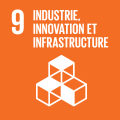
11 - Sustainable cities and communities
Make cities and other human settlements inclusive, safe, resilient and sustainable. Key issues: access to suitable housing and basic services that are secure and affordable, suitable and sustainable transport systems, inclusive urban planning, participative planning and management, protection of cultural and natural heritage, air-quality, green zones, and connections between urban, peri-urban and rural areas.
More information